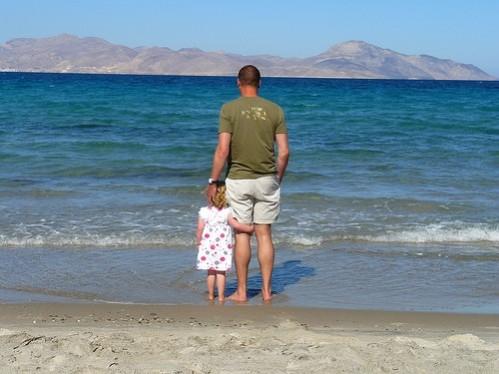 Peter Werkman/Flickr)" />
Peter Werkman/Flickr)" />Fathering a child at an old age can leave a negative impact on the child's appearance, researchers reveal. Mutations in the sperm that increases with a person's age were found to be playing a major role in this occurrence.
Many studies in the past have shown the hidden health risk associated with late fatherhood. A study published in the JAMA Psychiatry in February linked delayed fatherhood (above age 45) to brain disorders like autism, bipolar disorder, ADHD, psychotic disorders, substance abuse and suicidal behaviour in children compared to the fathers having children at a young age.
Another study published in the journal Nature found that old fathers transfer more number of genetic mutations to their offspring, thus putting them at higher risk to various types of developmental and psychiatric problems including autism and schizophrenia.
Apart from these, there are solid evidences to show older fathers contributing preterm birth, miscarriage, birth defects and delayed pregnancy.
A young father aged around 20 years, passes on nearly 25 mutations to his child. The number of mutations increase every year and the total number of mutations reaches 65 by age 40, according to experts.
In the new study, Martin Fieder and colleagues from the University of Vienna in Austria collected photographs of 8,034 people aged between 18 and 20 years. Another 12 people were recruited to rate the participants' attractiveness. Observers rated people with older fathers as less attractive compared to those who had young fathers, The Telegraph, UK reported.
"We found a significant negative effect between paternal age and people's facial attractiveness," The Telegraph quoted Martin Fieder, an associate professor in anthropology at the University of Vienna, as saying to The Sunday Times. "The effect is very visible. Someone born to a father of 22 is already 5-10 percent more attractive than those with a 40-year-old father and the difference grows with the age gap."
Though delayed fatherhood has mostly been connected to such unhealthy events, previous research has shown some benefits that an old father brings to his child. A study published in the Proceedings of the National Academy of Sciences found an increase in life expectancy of children who had old fathers and grandfathers.

















